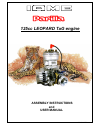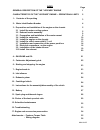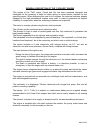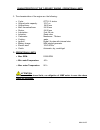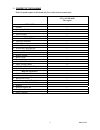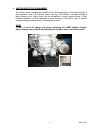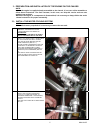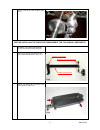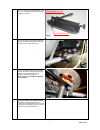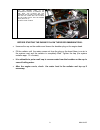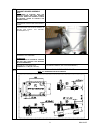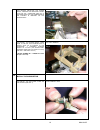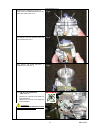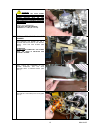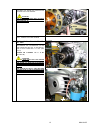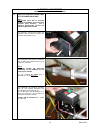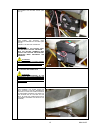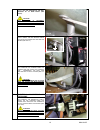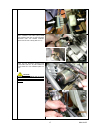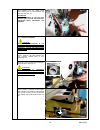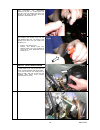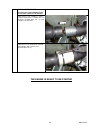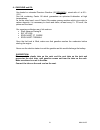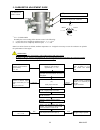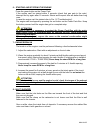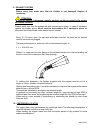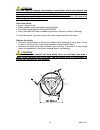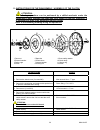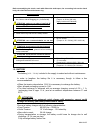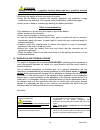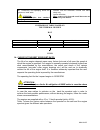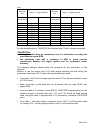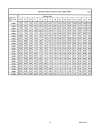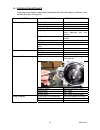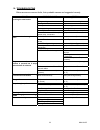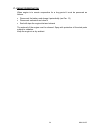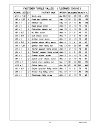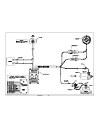- DL manuals
- IAME
- Engine
- 125cc LEOPARD TaG
- Assembly Instructions And User's Manual
IAME 125cc LEOPARD TaG Assembly Instructions And User's Manual
Summary of 125cc LEOPARD TaG
Page 1
Man-016 d 125cc leopard tag engine assembly instructions and user manual.
Page 2
Index general description of the "leopard" engine page characteristics of the "leopard" engine – operational limits 1- contents of the packing 2- motor identification number 3- preparation and installation of the engine on the chassis 3.1 install the water cooling system 3.2 exhaust header assembly ...
Page 3
General description of the "leopard" engine this engine of the "tag" series (touch and go) has been expressly designed and developed for the powering of karts for hobby racing on closed tracks, destined for this specific purpose. When designing this new line of engines, the technical solutions alrea...
Page 4
Characteristics of the "leopard" engine - operational limits 1. The characteristics of the engine are the following : • cycle: otto / 2 stroke • original cubic capacity: 123.7 cc • original bore: 54.00 mm • max. Theoretical bore: 54.28 mm • stroke: 54.00 mm • lubrication : fuel-oil mix • induction: ...
Page 5
1- content of the packing each leopard engine is delivered with the under shown accessories: -125 cc leopard- tag engine exhaust • flexible 1 • spring for flexible 3 • exhaust fiber strip 1 • exhaut header 1 • exhaust muffler 1 induction • tillotson carburetor 1 • intake silencer 1 • intake silencer...
Page 6
2- motor identification number the official motor identification number can be found stamped in the lower left part of the crankcase, next to the electric starter (see fig.) the number normally includes a letter followed by 4 digits (there can be exceptions in some special cases). Other numbers stam...
Page 7
3- preparation and installation of the engine on the chassis note: in case the engine is supplied already assembled on the chassis, it is at care of the assembler to follow these instructions. The final customer, in this case, can skip this section and can start reading from section 4. Whenever the ...
Page 8
4 install the belts and tension (see fig. 4). Before installing the radiator preassemble the following components 5 assemble the connecting bracket on the radiator support bracket. 6 install the upper left bracket on the connecting bracket (see fig. 5). 7 insert the radiator by fitting it on the sup...
Page 9
8 install the upper right bracket and fix to the radiator fixing suppport. Torque all bolts. 9 place the radiator support bracket on the side rail, brake side (tighten the bolts by hand) (see fig. 8). 10 place the radiator so that the hole on the radiator fixing support and one of the upper holes of...
Page 10
12 cut the second hose at an appropriate lenght to connect, on one side, the fittings on the radiator outlet and the pump inlet and on the other side the fittings on the pump outlet and the engine inlet (see fig. 10). Fix with steel clamps. Fig.10 before starting the engine follow these recommendati...
Page 11
3.2 exhaust header assembly note: the engine is supplied with the exhaust gasket and nuts already inserted. When the shipment is made an exhaust cover to protect the internal parts. 3.2.1 remove the nuts and the exhaust cover. 3.2.2 make sure the exhaust gasket is seated and install the exhaust head...
Page 12
3.3.2 before installing the motor mount, position the additional mount plate on the crankcase (see fig. 2) and make sure that the rubber ring in the support is inserted on the starter body. 3.3.3 install the motor mount. Make sure to use m8 allen screws with a lenght such as to engage, in the crankc...
Page 13
3.4.2 remove 2 screws 3.5mm on the carb. Pump (in correspondence of the throttle lever) (see fig. 5). Screwdriver 4.8 mm. 3.4.3 insert the gas bracket and the two screws (see fig. 6). 3.4.4 install the intake support – 2 screws m5 x10 (see fig. 7) 3 mm allen wrench 3.4.5 install the carburetor (see ...
Page 14
Attention: when replacing the carb gasket always make sure that the gasket is installed so that the hole in the gasket matches with the two pressure holes in the carb. And in the crankcase: otherwise the engine won’t start. Install the carburetor. N.2 nuts m6 and two washers. Torque at 6 ÷ 10 nm (50...
Page 15
3.5.4 move the engine on the rails and optimize the chain tension . Attention: the play of the chain must be appr. 15mm (½÷¾ inch) measured in the shown point (see fig. 16) 3.5.5 torque the clamp screws install the clutch cover with h.T. Coil 3.6 3.6.1 remove the 3 screws m6 x 30 on the crankcase (s...
Page 16
Electrical connection (refer to the attached electrical schematic) 3.7 installation and connection of the power pack box. Note: the power pack box is supplied already assembled on the battery support (with battery) . For a correct installation follow the under shown instructions. 3.7.1 extract the b...
Page 17
3.7.4 insert the battery strap (see fig. 19). 3.7.5 insert the battery with terminals towards the outside (see fig. 20). Connect the battery terminals. Suggestion: never connect the battery until you are ready to start the engine. Seal the battery terminals with plastic tape to avoid that eventual v...
Page 18
3.7.6.2 file the painting on the seat support up to bare metal (see fig.22). Attention: this operation is extremely important as an uncertain grounding could damage the power pack box beyond repair. 3.7.6.3 insert the box ground cable eyelet on the screw and tighten the screw (see fig. 23) 3.7.7 pos...
Page 19
3.8.2 connect the cable (red) from the power pack box to the electric starter (use the screw already installed on the cable) (see fig. 27). 3.8.3 fix the electric starter and the cable (see fig. 28) and complete the fixing of the harness (see fig. 29). Attention : never let the harness get in touch ...
Page 20
3.8.4 connect the coil cable from the power pack to the terminal on the coil (see fig. 30). Suggestion: seal the terminal on the coil with plastic tape to avoid that eventual vibrations might disconnect the terminal. 3.8.5 ground the engine attention : an inadequate grounding of the engine could dam...
Page 21
3.8.6 puncture the insulating material on the h.T. Cable with the end of the cap spring so that the spring is in sure contact with the internal wire (see fig. 33). 3.8.7 insert the spark plug cap on the spring (see fig. 34). Install the spark plug and the cap over the spark plug. • install the spark...
Page 22
3.10 install the exhaust see section 9 for recommendations on the ideal lenght of the exhaust. 3.10.1 install the flexible (l= 65mm – flexible completely closed) and the exhaust header (see fig. 37) and connect the exhaust. 3.10.2 install the fiber strip around the flexible and fix with the 3 spring...
Page 23
4- gasoline and oil use leaded or unleaded premium gasoline (92 ron+mon ) mixed with oil at 6% - (16:1). Use oils containing castor oil which guarantees an optimized lubrication at high temperatures. 2 as on the other hand, use of castor oils creates gummy residues which give origin to carbon deposi...
Page 24
5- carburetor adjustment guide ( i ) throttle speed screw 1 t.O. * ( l ) low speed fuel mixture ( h ) high speed fuel mixture rich lean 1 ¼ t.O. ¾ t.O. 1 ½ t.O. * t.O. = turns open normally the correct setting of the mixture screws is the following: l (close the screw completely and then open): 1 ¼ ...
Page 25
6- starting and stopping the engine press the green button on the power pack . If the engine can’t be started within 5 seconds (check that gas gets to the carb.) interrupt and try again after 15 seconds. Shorts and frequent tries are better than long ones. In case the engine can’t be started refer t...
Page 26
9- exhaust system before every test, make sure that the flexible is not damaged. Replace if necessary. Attention: in case the flexible is damaged, metallic particles could be sucked in the engine and cause a seizure. Always make sure that the springs are well hooked and in place. In case of breakage...
Page 27
Attention: once the engine is started, avoid useless accelerations which can overheat and deteriorate the clutch. Oil the chain before each tests, immediately after each race or test, check the engine sprocket. Replace if necessary. A bad alignment of the engine sprocket with the axle sprocket or th...
Page 28
11- instructions for the disassembly / assembly of the clutch attention: the following operations can be performed by a skilled mechanic under the conditions to have available the dedicated tools shown on the text, otherwise it is necessary to apply to an authorized service center. Refer to the foll...
Page 29
Before assemblying the clutch, wash with diluent the shaft taper, the connecting hole on the clutch body, the clutch drum and the starter ring. Clutch assembly 1. Install the starter ring on the clutch body by matching the 3 holes and the dragging pin. (3 screws m6) attention: make sure to always in...
Page 30
Attention: always connect the - (negative) terminal before and the + (positive) terminal after. Always disconnect the battery in opposite order. Recharge the battery at least once every 6 months. Never put the battery in contact with solvents, gasolines, oils, plastifiers or rags containing such ele...
Page 31
An excessively cold sparkplug shows the symptoms, listed aside. Attention: always use a colder than standard sparkplug with hot climates. Insulator end and electrodes covered with black shady soot. Ignition difficulties. Note: a wet or oily electrode could also mean an excessively rich mixture. Comp...
Page 32
Sprocket ratio teeth n° - engine sprocket sprocket ratio teeth n° - engine sprocket teeth n° - axle sprocket 10 11 teeth n° - axle sprocket 10 11 72 7,20 6,55 83 7,55 73 7,30 6,64 84 8,40 7,64 74 7,40 6,73 85 8,50 7,73 75 7,50 6,82 86 8,60 7,82 76 7,60 6,91 87 8,70 7,91 77 7,70 7,00 88 8,80 8,00 78 ...
Page 33
Man-016 d 31.
Page 34
15- scheduled maintenance following some simple maintenance standards will allow the engine to perform more reliably and have a longer life. Schedule components actions and comments before using exhaust flexible check status exhaust springs check status exhaust strap check status exhaust muffler che...
Page 35
16- troubleshooting below are some common faults, their probable causes and suggested remedy: faults probable cause remedy starter will not crank when pushing the start button. Bad connections on starter cables. Check and tighten bad grounding check connections and tighten damaged cables replace bat...
Page 36
17- engine preservation when engine is to remain unoperative for a long period it must be preserved as follows: disconnect the battery and charge it periodically (see par. 12) disconnect carburetor and clean it seal with tape the engine inlet and exhaust the external of the engine must be cleaned. S...
Page 37
Man-016 d 35.
Page 38
Man-016 d 36 man-016 d 36.

